European Commissioner Juncker hit out at those calling for a fortress Europe this morning - “Imagine if it were you, your child in your arms, the world you knew torn around you. There is no price you will not pay, no wall you will not climb, no border you will not cross, to escape the war and barbarism shown by the Islamic State”.
He called on EU countries to agree by next week to share 160,000 refugees, warning that Greece, Italy and Hungary can no longer cope alone.
Juncker's new plan involves sharing 120,000 refugees from Greece, Italy and Hungary among 22 member states, on top of a proposal the EU's executive made in May to share 40,000 refugees from just Greece and Italy. Britain, Ireland and Denmark are not legally bound to take part. Greece, Italy and Hungary of course are not included.
President Jean-Claude Juncker began delivering his first State of the Union in the European Parliament in Strasbourg at 9 am Wednesday.
He presented a review of what has been achieved since coming to office in 2014, an outline of upcoming Commission initiatives, and also a long-term vision for the EU.
The EC President intends to make the Commission more “political”, by this he meant in the best possible connotations of the word. “I do not mean I will politicise everything. I really do feel that now is not the time to go ahead with business as usual.
We have to look overtly at the huge issues confronting the European Union, he said, adding that this is what he wants to focus on. "The EU is not in a good situation. There is no point for the EU democratic representatives to paint a rosy picture. No we are not in a good place. There’s a lack of Europe and a lack of Union in this European Union, and that has to change, we have to change it now. We have to work together. That is the remit we received from the European electorate".
President Juncker was interrupted by UKIP MEPs and in response he said “You can interrupt me from time to time, however I will not respond everytime as what you are saying is worthless”. This statement was received with applause from the other MEPs.
The EC President spoke of the refugee crisis, explaining that 200,000 refugees are in Greece, Hungary with 150,000 refugees and Italy with 120,000. “People must not be frightened, it is time for bold immediate action”.

He explained that humanity and human dignity must be the top priority, and for “Europe, it is a matter of historical fairness”.
“We are all Europeans here. All of us must remember that Europe is a continent where nearly everyone has at one time been a refugee. Our common history is marked by millions of refugees fleeing religious persecution, from war, from oppression. Jews, Roma fled from Germany in the 30s and 40s. Spanish republicans fled to French refugee camps in the 1930s after their civil war defeat. Czech and Slovak citizens seeking refuge in other countries after the Prague Spring in 1968, and also those fleeing the Yugoslav wars”.
“Have we forgotten that there is a reason why there are more Macdonald’s living in the USA than in Scotland, and more O’Neil’s in the USA than in Ireland?”
“Have we forgotten that 60 million people were refugees in Europe after WW2? The 1951 UN Convention was established for those who jumped the wall in Europe to escape oppression. We must never forget why giving refuge and the fundamental right to asylum is so very important, and we must not forget that”.
“Today it is Europe that represents a beacon of hope to people in the world and this is something to be proud of, not to fear. Europe, in spite of many differences among the member states is by far the wealthiest place and the most stable place in the world. Those criticising the EU must admit that this is the place for stability and we must be proud of this”.

“We have the means to help those fleeing from terror and oppression. It is true that Europe cannot house all the world's misery, but let us be honest and put things into perspective. There is certainly an unprecedented number of refugees coming to Europe, but they still represent just 0.11% of the EU population. In Lebanon, refugees represent 25% of the population in a country who has 1/5th of the wealth of the EU. Who are we not to be making these kinds of comparisons”.
“We have to accept these people in the European territory”.
Juncker calls for relocation of extra 120,000 refugees from Italy, Hungary and Greece
He applauded the efforts of Jordan, Turkey and Lebanon for their part in the refugee crisis. “These countries, by far poorer, are making strides which we should applaud. We have committed to resettle 22,000 people from outside Europe over the next years, showing solidarity. But this remains too modest compared to the efforts by those three countries who are hosting over 4 million refugees. Some member countries are fighting to step up our efforts which will allow us to come forward with a new resettlement system. It will be done”.
He said that member states where most refugees first arrived, cannot be left alone to cope with the enormous challenge.
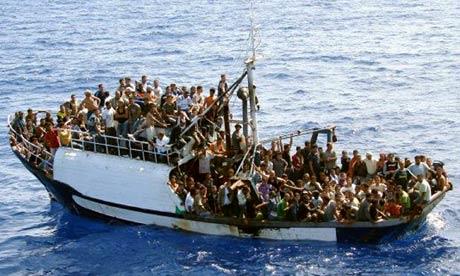
"Winter is approaching. Do we really want families sleeping in cold tents, in railway stations, on shores. We are in charge of the Winter period for those who had to flee their countries. Relocation alone will not solve the issue. Today, the Commission is also proposing a common EU list of safe countries of origin". This will enable states to fast-track return applications to those countries considered safe to live in".
"A list of safe countries does not remove the asylum rights from those in safe countries. Asylum is a right, however it will allow focus on those coming from danger zones".
He also proposed a permanent relocation mechanism that will help deal with a crisis situation more swiftly in the past. “Member states need to take a second look at their support, integration and inclusion policy and the Commission will look into how EU funds will support these efforts”. He said he is in favour of allowing asylum seekers to work and earn their own funds while their applications are being processed. Labour is a matter of dignity and those working will again find their dignity. We should do everything to change national legislation to allow them to work”.
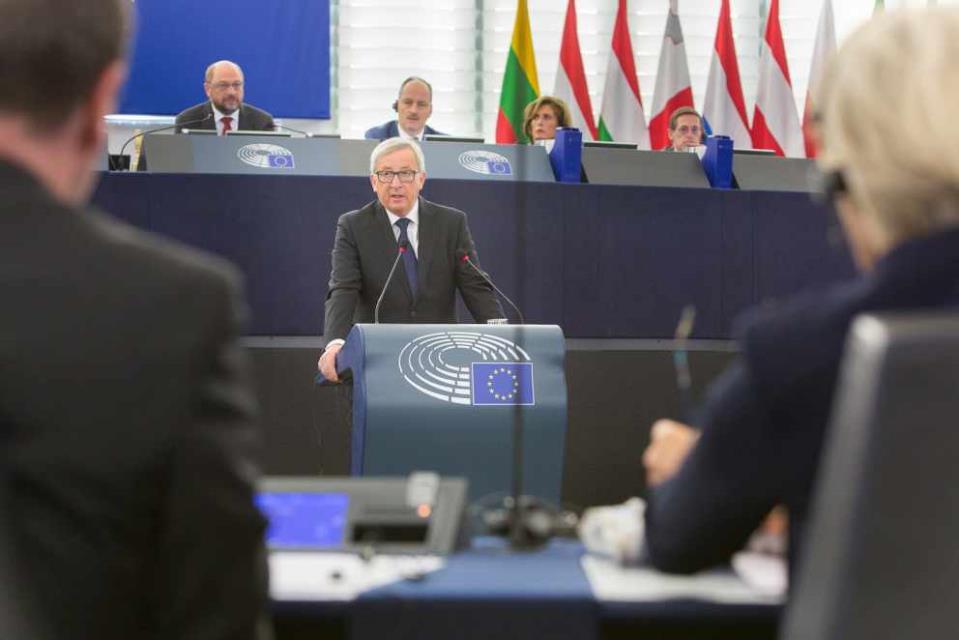
He said that freedom of movement will not be abolished, but states must work closely to manage external borders. President Juncker mentioned the need to strengthen Frontex, and believes that such funds will be well invested. “We will propose ambitious steps towards EU Border and Coast Guard this year”.
He also mentioned the need to explore legal channels for migration. “This will not help address the refugee crisis, but if there are more open safe controls to Europe, we can better manage migration and make human trafficking less attractive. He mentioned the EU’s ageing population, “and migration must change from a problem to a well-managed resource and the EU will come up with a well-designed legal migration package in early 2016. Migration must be legalised, it is not sufficient to criticise illegal immigration, we must create legal ways to Europe”.
He mentioned that the EU can no longer not be united on the wars on Europe’s border, and spoke of the need to find a solution to the Libyan and Syrian crisis. “We need a stronger Europe when it comes to foreign policy”.
He said the refugee crisis will not be over any time soon, but turning a blind eye to helpless people, burning boats and camps – “that is not Europe. Europe is the Munich students who await the arrival of refugees, applauding and welcoming them”.
“The Europe I want to live in is illustrated by those who are helping, the Europe I don’t want to live in is refusing those who are in need. The crisis is dark and the journey is long”.
The EC President also hinted at the need to move away from the Dublin regulations.

Greece
Turning to the Greek crisis, he said that the debate has been difficulty and he endeavoured at great length to explain to the Greek Prime Minister that “We are democratic countries discussing on a democratic basis”.
The Commission has been attacked by some member states who were not able to accept the proposals aimed at finding a solution to the Greek crisis, and as I have said before, the Commission has a weighted duty to be the custodian of a general interest. Not dealing with the Greek issue would have been a failure on the part of the Commission and we did what we felt was right and our duty”.
He explained that stating Grexit was not an option had to be said, otherwise “Grexit would have happened. It was important that they would be saved at any cost. I’m not a magician. I had to make it clear that Grexit was a possibility but not an option we would mention publicly. The Greek issue is not just a question of consolidating public finances, but is a much more weighty problem impacting its position in the EU and economic growth in that country. I think the EU is proud to have Greece as a member and I have been disturbed by statements that Greece should not be a part of Europe. We must show respect to the Greeks and there has been a failure to do that by some in recent times”.
“We have agreed on a programme and I would like it to be respected by the current and all future Greek governments. There have been a number of rules that have been agreed. We all need to realise that we are serious and require respect of agreements reached.. €35 billion as been added to the fund to regenerate economic growth in Greece, which is not simply a gift, I would like it to be respected for what it is and hope we can make progress. The crisis is not over and while we have made progress, there are over 17 million people in the Eurozone unemployed. Economic recession will only be over when unemployment ends”.
Every individual has the right to a job, he said, adding that the AAA status is essential and Europe must again reach full employment which is far from impossible, he said.
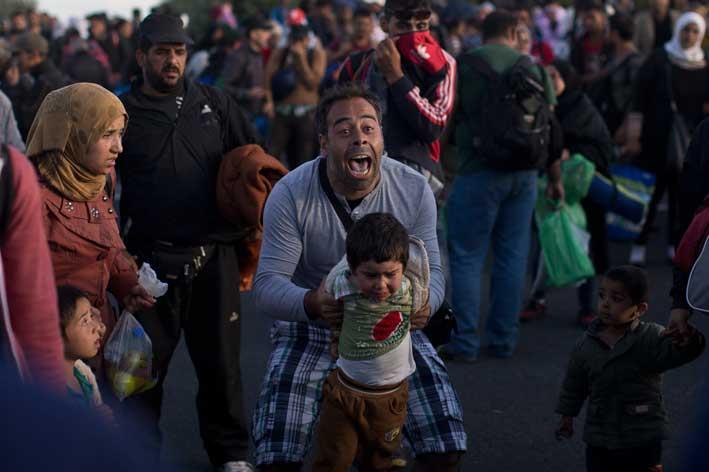
We should have fair remuneration in Europe
He said that the European Parliament should be involved in the European Economic and Monetary Union.
He spoke of a reassurance scheme that would give grater certainty to investors in Europe. “We are also in favour of introducing a European Treasury, but it is something that would need to be discussed in further detail. This treasury would be able to work with the stability mechanism and dove-tail with that mechanism to guarantee better stability. As for fiscal policy, he said that information exchange on fiscal matters should be introduced by the Council.
“We feel tax on revenue where generated is paramount, and feel it is essential that the EU work on the basis of this simple rule that has been flouted in the past. We must respect the rules in place and we feel that we should have fair remuneration in Europe, the same work for the same job wherever it is in the EU. That is right and proper”
He said that the European Parliament should be involved in the European Economic and Monetary Union.
He spoke of a reassurance scheme that would give greater certainty to investors in Europe. “We are also in favour of introducing a European treasury, but it is something that would need to be discussed in further detail. This treasury would be able to work with the stability mechanism and dove-tail with that mechanism to guarantee better stability. As for fiscal policy, he said that information exchange on fiscal matters should be introduced by the Council.
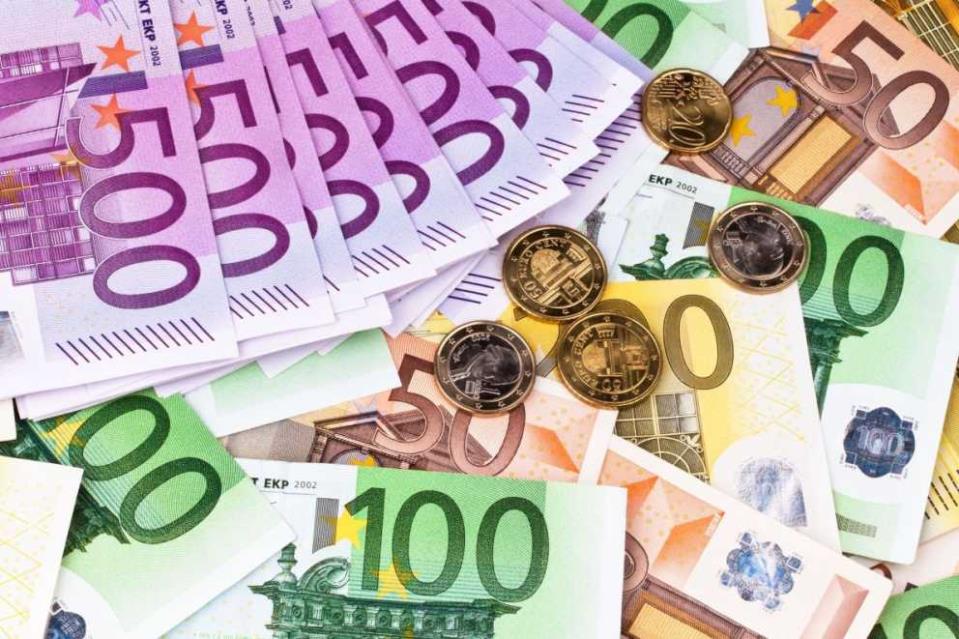
“We feel tax on revenue where generated is paramount, and feel it is essential that the EU work on the basis of this simple rule that has been flouted in the past. We must respect the rules in place and we feel that we should have fair remuneration in Europe, the same work for the same job wherever it is in the EU. That is right and proper”
“It is abnormal that the IMF is a body where we don’t have proper EU representation, but all countries represent their own views as they see fit. The President of the Eurozone should represent the EU in these bodies”.
He mentioned that country specific-recommendations issued by the Commission should be complied with by the member states, adding that they’ve reduced the number to three per time. The Council then takes note of the reforms and it is important that they be implemented. “It is important that nations take note of the changes put forth by the Council”.
The President said he is sure he will find a fair deal for the British. “Of course the UK is right when criticising the EU for being too bureaucratic. It is my Commission’s programme to bring this down. We are doing everything we can do for regulation to be better, but this does not mean no rules and that the EU should stay away from everything. We are completing the internal market, taking initiative after initiative to promote entrepreneurship”.
He called on the British to support the initiative of the Commission in this field, and the need to promote as many trade agreements in the world, including the Transatlantic Trade and Investment Partnership. “I am in favour of TTIP but not in giving away European values”.
“The more we tell those we are negotiating with the weaker our position is. I’m favour of transparency but negotiations must be handled in a serious way”. He was referring to criticism that the EU has not been transparent on the TTIP negotiations.

A warning to Putin
We have offered Ukraine all their needs and will continue in that way. We helped them financially, helped them broker a winter gas supply and advising them on judicial reforms. I will do everything to enable visa free travel to Ukrainian citizens.
The EC President fired a warning shot aimed at Russian President Putin "Balkan member states, and Poland are untouchable. We are there and we will be there. They are very important members of the EU and they should not think that we would not be there if their borders are in danger. We are obligated to protect their security".
The serious and tense note of discussions was often eased by comments by UKIP member Nigel Farage, where EC President Juncker often chose to poke fun at his comments. At one particular moment, one MEP, as a sign of protest, wore a mask of German President Angela Merkel, walked down to the podium, shook Juncker’s hand, and left the session.
Turning to climate change, he said that Europe must be an example, a model for others and must not remain neutral.

“The EU is not in a great state, but we must not just sit back and criticise the Union. We have gotten a lot of work done and I would not have it said that the Commission has done nothing on migration”.
He expressed his pride at being Commission President, explaining the importance of the ten priorities. "Let us not stint in our work, let us make further headway, let us continue".
Ten priorities
Two major crises befell the EU and took prominence this past year. The ongoing migration crisis, where a flood of asylum seekers, refugees and economic migrants have come in droves, crossing the Mediterranean through a perilous journey while in the East, thousands flood into Hungary. The second was the threat of a Greek Eurozone exit and economic crash.
President Juncker has another sizeable threat on the horizon, that of a British exit from the EU. There is no doubt that behind closed doors lobbying between the Brits and the EU institutions are continuously ongoing to find some form of compromise that will help Cameron keep Britain in the EU, however the British stance on migration could negatively impact Cameron's possibility of a good deal with the EU.
When members elected Jean-Claude Juncker as president of the European Commission on July 15, 2014, he vowed to focus on ten policy areas, from boosting Europe's economy to fostering democratic change.

European Parliament President Martin Schultz thanked Juncker for his work, and for putting the EU as a priority despite the recent death of his mother. “We all feel for you”.
EPP President Manfred Weber
EPP President Manfred Weber mentioned that when he was in Milan, an Italian Minister came to him and said that he had visited a refugee home. “He was told that she left Africa with five children, but only reached Italy with one. There was almost a dead soul behind empty eyes when he told me this. We need to guarantee aid. If you look at Lebanon and Jordan, we in rich Europe must do the necessary to do our humanitarian duty. The Cypriot Prime Minister said they only want Christians, but we defend human rights, not just Christian rights”.
“Its not Europe or Brussels that has failed, but national egotism. We have seen all these people come to Europe and most often they do not receive proper legal process and are not accepted. People say we must use the asylum rules properly and this is true”.
“Migration is linked to the economic situation in the continent. We need jobs, jobs for young people. The EU has continued to produce jobs and a decent standard of living and it is true opening up world trade has not always helped us, but the mobility package always has”.
On Greece and the economic situation, he said he hopes to get with Tsipras in the future, mentioning that he has earned respect through changing course and proven that the left ideology has failed on the continent.
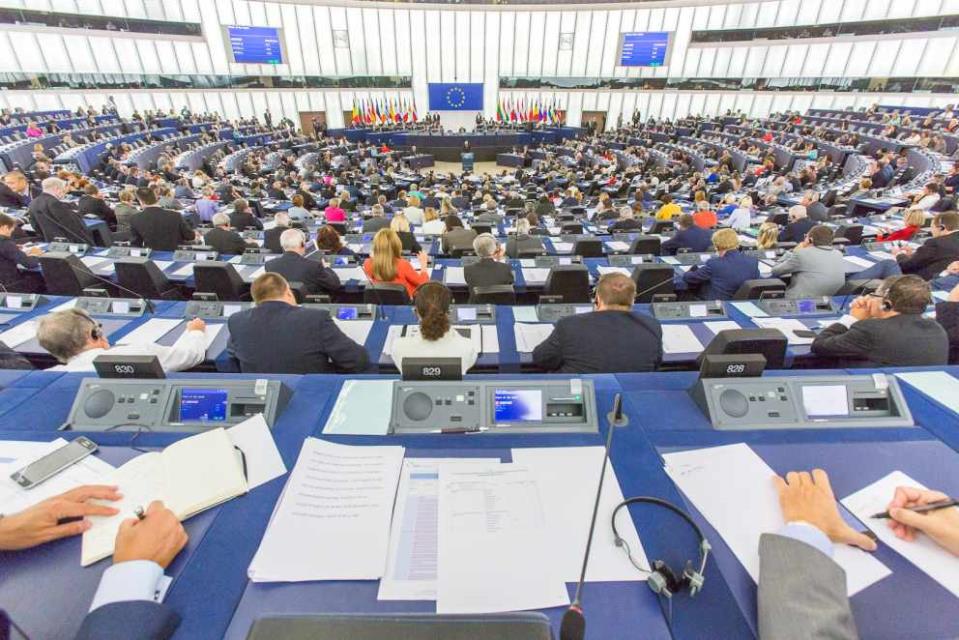
S&D Leader Gianni Pittella
“The Commission is doing well in allocation quotas and it is a good idea to review Dublin,” S&D President Gianni Pittella said.
He mentioned the economic crisis, adding that rules in force must be respected and the EU must get rid of social dumping. We must do something about zero hours contracts and ensure jobs are secure.
He spoke of the need to address sovereign debt which is a “shocking position” for the EU to be in. “We must put in a proper investment package to support the economy and create a sustainable circular economy”.
"We need to make a choice, and we must make that choice. We must be those who make a success of the EU otherwise we condemn ourselves to watch its demise”.
Kevin Schembri Orland is reporting from Strasbourg.